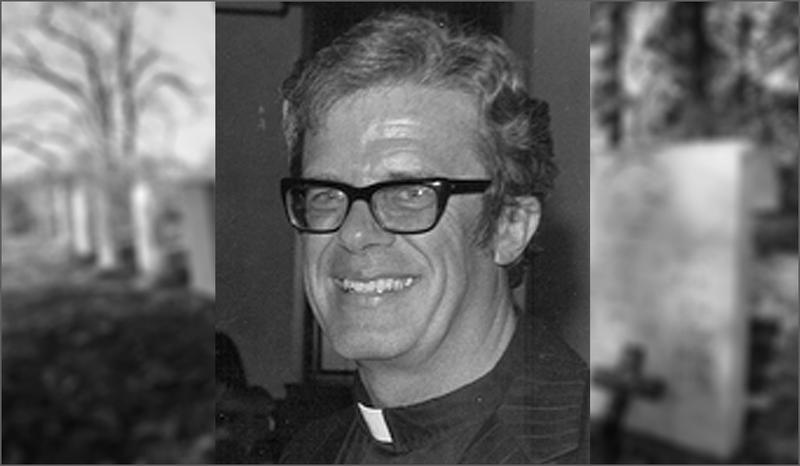
Gonzaga University President Responds To Investigation Into Abusive Jesuit Priests
Read On
BY EMILY SCHWING & MICHAEL COREY / REVEAL
Gonzaga University President Thayne McCulloh said Monday night in a written statement to faculty, staff and students that he knew Jesuit priests accused of sexual abuse were living in a Jesuit residence on campus, but he had not been aware that any of them might be a threat to students.
McCulloh was responding to a story by Northwest News Network and Reveal from The Center for Investigative Reporting about sexually abusive Jesuits whose victims were predominantly Native girls, boys and women in Alaska and the Northwest. A Jesuit home on Gonzaga’s campus, Cardinal Bea House, became a retirement repository for at least 20 Jesuit priests accused of such sexual misconduct.
It’s unclear exactly when McCulloh learned about the accused priests living on campus. His statement provides what appears to be contradictory information.
“It is important for me to share with you, that in the years following the 2011 Oregon Province bankruptcy, I learned that there had been priests under supervised ‘safety plans’ living at the Jesuit retirement community (Bea House),” he wrote.
But in the next sentence, he says, “It was not until 2016, when the Province chose to begin relocating a number of retired men to the Sacred Heart Community in Los Gatos, that I learned that among them were Jesuits who had been on safety plans (and were moved).”
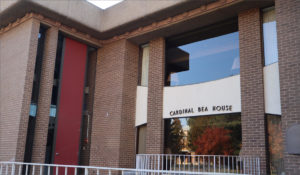
The Cardinal Bea House sits on the campus of on Gonzaga University. It played host to at least 20 Jesuit priests accused of sexual abuse. CREDIT: EMILY SCHWING/N3
McCulloh would not make himself available to clarify his statement. He also had declined to be interviewed for the original investigation.
The abusive priests were given safety plans to restrict their interactions with students. The investigation found they were not rigorously enforced.
McCulloh said he relied on Jesuit leadership “to inform us of any Jesuit whose history might pose a threat to our students or campus community. I deeply regret that I was not informed of the presence of (Father James) Poole, nor any other Jesuits who might pose such a danger.”
Poole was a Bea House resident whose prior abuse of at least 20 women and girls, many of them Alaska Natives, was detailed in the investigation.
McCulloh said he had been deeply wounded by the revelations of Jesuit abuse nearly a decade ago.
“Those wounds for me were re-opened this weekend, at the revelation that the Society of Jesus had knowingly sent a man with Poole’s record of sexual abuse to live in their facility within the parameters of our campus – which serves not only as the home of college students, but regularly hosts grade-school children and visitors of all ages,” he said.
McCulloh wrote that he has asked Jesuit leadership for a future guarantee “that no Jesuit against whom credible allegations of sexual misconduct or abuse have been made ever be assigned to Gonzaga.” There is no record that accused Jesuits currently live at the home.
Meanwhile, Jesuit officials moved Tuesday to freeze public access to the Oregon Province’s archive housed in Gonzaga’s library, which contains past assignment records, historical letters, photographs and other documents. Jesuit spokeswoman Tracey Primrose said in an email that access to the archive was restricted because “we realized that private personnel information was housed in the Archives and was accessible to the public. It should not have been.”
According to a new policy that went into effect immediately, “any non-Jesuit entities or persons seeking access to the archives of the former Oregon Province must first obtain permission from the US West legal counsel.” According to an email, the order comes from the head of the Jesuits West province, Scott Santarosa.
In November, Santarosa had expressed a desire to increase transparency about sexually abusive priests. “The People of God rightly demand and deserve transparency on the part of Church leadership,” he wrote in a letter announcing his decision to release an updated list of Jesuits with credible allegations of sexual abuse of minors. It was released Dec. 7.
At least a dozen names that previously have been reported by other dioceses and in bankruptcy proceedings are missing from the list, according to a review of the names by Reveal. Primrose did not explain the omissions.
McCulloh’s statement did not address whether any other senior Gonzaga officials were aware of the priests’ presence. Father Frank Case, currently vice president of the university and chaplain of the men’s basketball team, is a former provincial of the Oregon Province during the time when some accused priests were assigned to Bea House. Every previous Gonzaga president has been a Jesuit.
Cardinal Bea House is owned and operated by the Jesuit Order, and the Gonzaga administration does not make decisions regarding who lives there.
This story was produced in partnership with the Northwest News Network and Reveal from the Center for Investigative Reporting.
Emily Schwing can be reached at emily@nwnewsnetwork.org and Michael Corey can be reached at mcorey@revealnews.org. Follow them on Twitter: @EmilySchwing and @mikejcorey.
Related Stories:
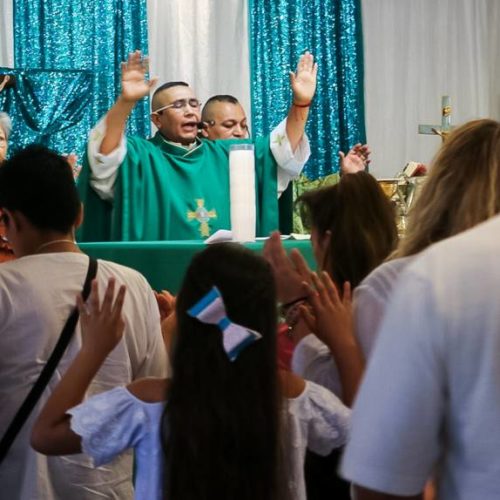
‘He Played With People’s Minds’: Former Yakima Priest Moves To California, Bringing Abuse Allegations
An investigation by KQED shows that Jesús Antonio Castañeda Serna, a former Catholic priest in the Diocese of Yakima, had been accused before and has moved from the Catholic Church to the Anglican Church and then to another religious group without undergoing complete background checks — or any at all.
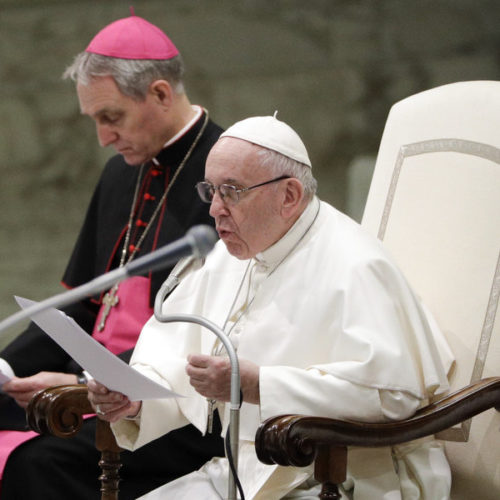
As Pope Holds Sex Abuse Summit, U.S. Catholics Not Hopeful For ‘Bold Moves’
Not surprisingly, when Pope Francis summoned more than 100 bishops to a meeting in Rome to address the “Protection of Minors in the Church,” the announcement raised expectations that it could mark a turning point in the Church’s lagging response to the ongoing clergy abuse crisis. The three-day meeting begins Thursday.
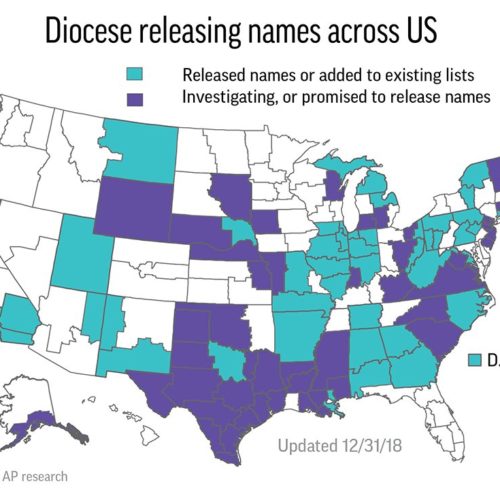
2018 Brought A Big Rise In U.S. Catholic Dioceses Naming Accused Clergy
Nearly 50 dioceses and religious orders have publicly identified child-molesting priests in the wake of the Pennsylvania report issued in mid-August, and 55 more have announced plans to do the same over the next few months, the AP found. Together they account for more than half of the nation’s 187 dioceses.















